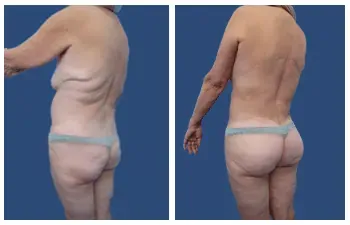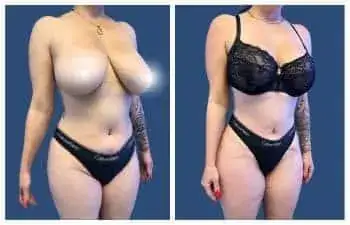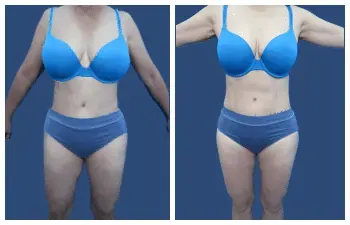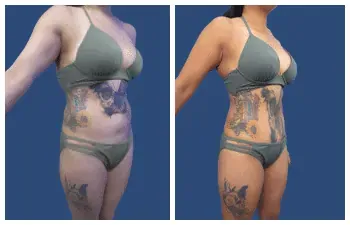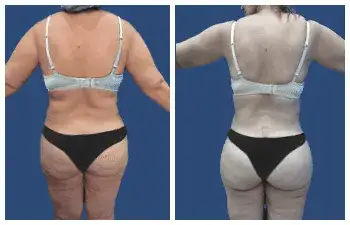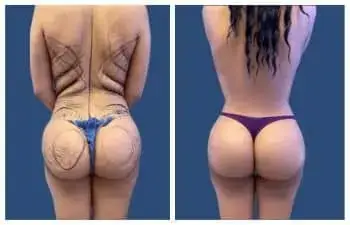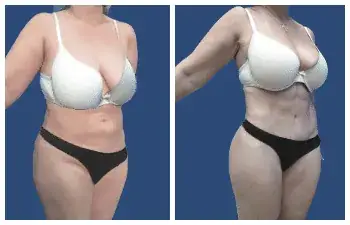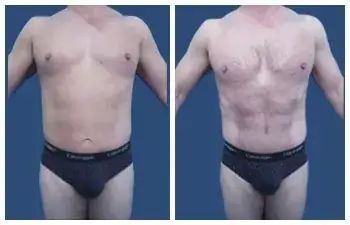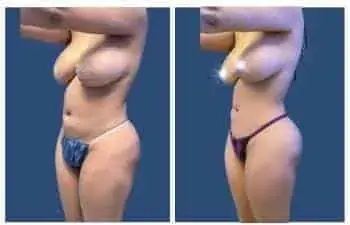Liposuction is one of the most commonly requested cosmetic procedures.
With this procedure, a body contouring surgeon can help you attain the ideal body.
Lipo can be used virtually anywhere, even on the cheeks and knees! The procedure is safe and effective for removing stubborn pockets of excess body fat.
While liposuction can give you a slimmer abdomen or more attractive arms and thighs, cosmetic surgery is not a magic wand. You must still do your part if you want to achieve and maintain the best results.
One of the best ways to keep your body looking it’s best following a lipo session is to eat the right types of foods. This guide outlines the foods to eat and avoid for a successful diet after liposuction.
What is a Post-Liposuction Diet?

A diet after liposuction is not a specific diet, per se. Rather, it is a set of rules to follow. By making these rules part of your daily living, you can begin to live more healthily, and you’ll be able to hang on to your stellar liposuction results.
The first rule is to rid your house of all junk food. This is called the “out of sight, out of mind” strategy. Instead, fill your fridge and pantries with fresh foods, such as the following, which the American Society of Plastic Surgeons recommends:
Fresh Fruits and Vegetables
The next time you’re at the grocery store, fill your cart with many multicolored fruits like apples, blueberries, cranberries, grapefruit, oranges, pears, plums, raspberries, strawberries, and watermelon.
Regarding vegetables, stick to asparagus, carrots, celery, kale, onions, spinach, squash, sweet potatoes, tomatoes, and yams.
Whole Grains
Don’t forget the grains. To fill your cart with good foods, including barley, brown rice, buckwheat, millet, corn, quinoa, oats, rye, oatmeal, and whole wheat.
Lean Protein
Good lean protein choices include white meat, chicken, and turkey. Salmon and other freshwater fish are also excellent lean protein choices, mainly because they’re rich in omega-3 fatty acids.
Foods to Reduce or Avoid
Diet After Liposuction isn’t about what you can eat. It’s also about what you should limit or not eat. Here are some foods to eat sparingly or not at all if you want the best liposuction outcome.
Sugars
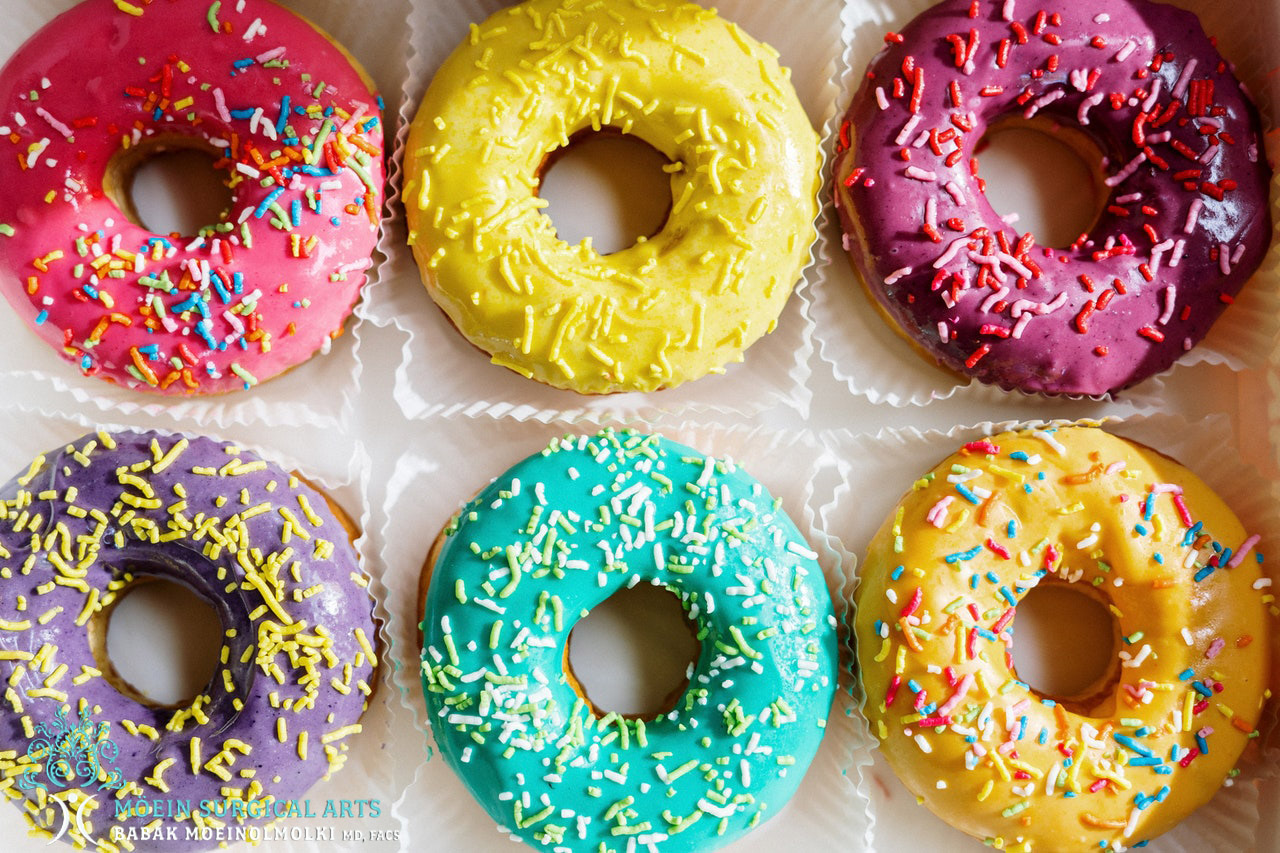
Plain sugar and foods that contain sugar can cause weight gain, which is counterintuitive to your liposuction goals. Sugar is low in vitamins and nutrients and should be replaced with whole, more nutrient-dense foods.
Simple Carbohydrates
Simple carbohydrates are digested quickly by the body, which sends a burst of glucose into the bloodstream. This infusion of energy makes you feel charged for a short time only to be followed by a crash of fatigue when the glucose is depleted.
Simple carbs include refined sugars, white bread, and white rice. It’s better to eat complex carbohydrates like brown rice and unrefined whole grains. These foods will fill you up and give you longer bursts of energy without the weight gain usually associated with simple carbohydrates.
Salty Foods
Try to avoid salty foods for at least four months following your liposuction procedure. Sodium can cause inflammation in the body, which can negatively affect the healing process. Feel free to use sodium substitutes, such as natural herbs and spices.
Saturated Fats
This is the kind of fat that is solid at room temperature. You find saturated fats in animal products and byproducts. Some processed foods are also found to be high in saturated fats.
Alcohol
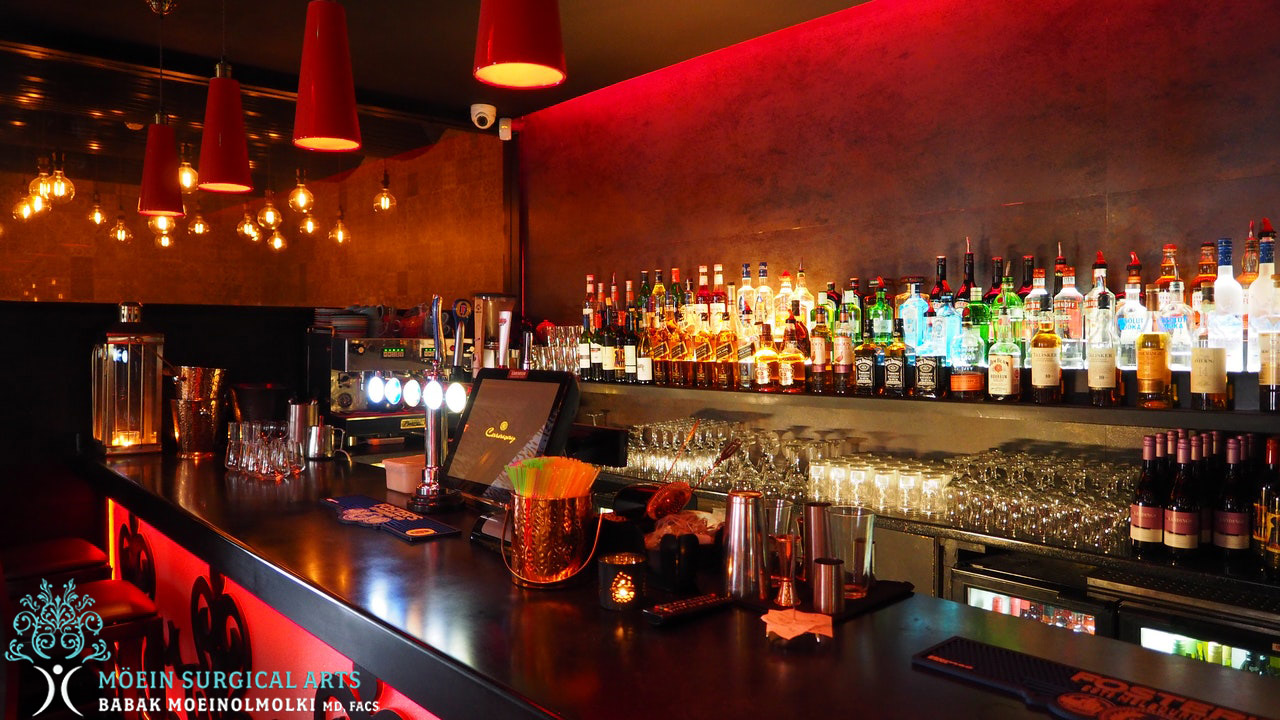
Alcohol beverages like beer, wine, and spirits can negatively interact with any post-treatment medication you are prescribed. Drinking alcohol can also cause dehydration. Try to avoid alcohol for at least 14 days following liposuction. Instead, aim to drink as much water and natural juices as possible. These healthier beverage choices will aid your body’s healing processes by flushing out toxins associated with medication and the liposuction procedure.
Tips for How to Eat in Diet After Liposuction
Eat Smaller Meals
Instead of eating two or three big meals each day, do your best to consume smaller meals throughout the day. Doing so will ensure you use all the energy from the foods you eat and prevent you from storing excess calories as fat. You’ll have more energy and keep the weight off while enjoying smaller portions of the whole foods you love.
Eat Healthy When Eating Out
While it’s easy to go wild when eating out with family and friends, most restaurants have healthy eating options that will help you stick to your diet after liposuction. These meals don’t have to be boring. In fact, many eateries have gone out of their way to ensure their healthier options are tasty and fulfilling. Try some out. You may find you like them better than the fat-filled or greasy alternatives.
Frequent Hydration
Your body will swell for several days following liposuction. During this time, and as your body heals, you should plan to drink more liquids than are necessary to prevent dehydration.
Drinking a sufficient amount of water during the day can help you control your hunger. Hydrating yourself also helps with maintaining a healthy metabolism, and aids in digestion.
Other Tips
While these tips are not necessarily a part of your diet after liposuction, heed the following tips to keep safe and achieve optimal results with the liposuction procedure.
No Smoking
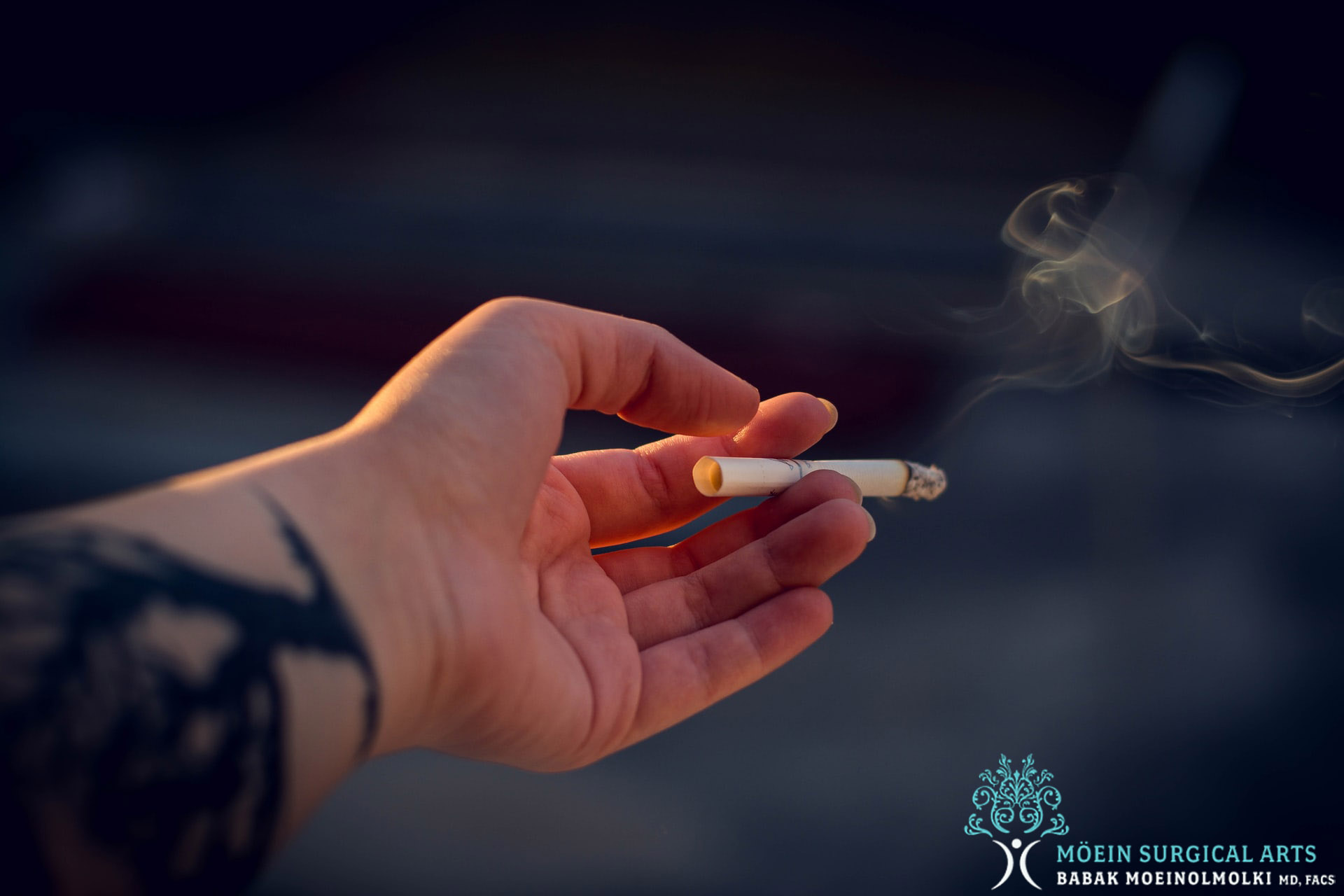
If you are a smoker, you are encouraged to break the habit before signing up for liposuction. Cigarettes contain nicotine, which is a substance that can increase your risk of bleeding and lead to other complications during and after surgery.
Do you have to quit smoking forever? It would be better for your health. If you don’t think you can quit for good, try to stop for at least a month prior to your procedure.
No Anticoagulant Medications
Your cosmetic surgeon will go over specifics during your consultation, but you’ll want to avoid taking medications that could cause complications. In particular, you will want to stay away from any medicines that thin your blood.
Aside from anticoagulants, you should stay away from any blood thinning substances, including Vitamin E, aspirin, and ibuprofen. Certain types of birth control may be included on that list. Check with your cosmetic surgeon to be sure.
Maintain a Healthy Weight
While you will not gain fat in the treatment area as easily, it is possible if you don’t take care to prevent weight gain. Eating a healthy diet can help you maintain your results and could even enhance them. Liposuction should never be a substitute for weight loss nor should it be utilized to safeguard against weight gain.
Avoid Weight Gain
You can still put on weight after liposuction if you return to unhealthy eating habits. Since lipo is an invasive procedure that costs money (and time), you should want to protect your investment. You can do so by making the necessary lifestyle changes before your procedure. Incorporate these tips into your healthy lifestyle and you are sure to enjoy the contours achieved through liposuction for years to come.
Get Some Exercise

It is important to avoid being sedentary early on during recovery. Walking is heavily encouraged. Getting your legs moving and arms swinging can reduce the risk of blood clots and prevent other complications that can occur following surgery. It will help you feel better and more yourself following the lipo surgery. You don’t have to walk far but you should walk often. Avoid strenuous exercise for at least four weeks.
The good news is that many patients experience faster and more noticeable results after exercising, which usually motivates them to continue with a healthier lifestyle. You may even begin to look forward to exercising, finding it fun, as you continue to see stellar results at the treatment site.
Diet After Liposuction Conclusion
Liposuction can dramatically improve your body’s contours, but attaining and maintaining the best results are up to you. Fill your fridge and pantry with whole, nutritious foods. Eat smaller meals and stay hydrated. Finally, get adequate exercise and stay in contact with your body contouring surgeon. Your surgeon is the one who can give you the best advice for achieving the results you want and how to maintain those results once you are all healed up.
Want to get the best results from liposuction? Start by selecting a qualified surgeon, such as Dr. Babak Moein of Moein Surgical Arts in Los Angeles. Dr. Moein is dually-trained in minimally-invasive body contouring surgery and cosmetic surgery, making him fully qualified to complete your liposuction procedure.
Call Moein Surgical Arts to schedule a consultation with Dr. Moein to discuss lipo at (310)694-4486.

